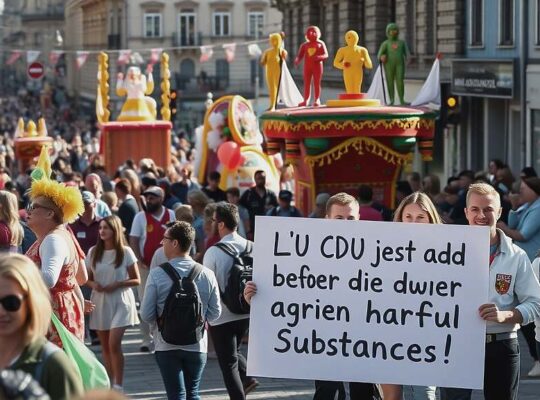Leading figures within Germany’s opposition Left Party and the Social Democrats (SPD) are sharply criticizing recent rhetoric and strategic maneuvering by the center-right Christian Democratic Union (CDU), warning against any attempts to bridge the divide with the far-right Alternative for Germany (AfD). The escalating tensions highlight a deepening political fracture and raise concerns about the potential normalization of extremist ideologies within the mainstream.
Sören Pellmann, parliamentary group chairman of the Left Party, condemned the CDU’s apparent shift towards adopting language reminiscent of the AfD, specifically referencing Chancellor Friedrich Merz’s description of migrants as a “problem in the city landscape”. Pellmann argued that this tactic will not diminish the AfD’s influence but rather risks the CDU absorbing its divisive and dehumanizing viewpoints, effectively blurring the lines between mainstream conservatism and extremist politics. “It’s futile to declare a ‘firewall’ while simultaneously employing the same hateful rhetoric as the AfD, thereby dividing the country and its people” Pellmann stated.
Thuringia’s Interior Minister Georg Maier echoed these concerns, accusing the CDU of losing its political compass and exhibiting a troubling lack of direction. He characterized Merz’s actions as a calculated attempt to cultivate electoral alliances with the AfD ahead of the next federal election, followed by a deceptive attempt to maintain an appearance of separation, all while utilizing the AfD’s core narratives.
Maier’s critique centers on the fundamental incompatibility of the AfD’s political agenda with the foundational principles of German democracy. He argued that the AfD disregards the legacy of Konrad Adenauer and Helmut Kohl and actively seeks to undermine the European Union, a cornerstone of post-war peace and stability. He implored the CDU to recognize that the AfD is not a conservative or civic party, but rather an organization aiming to establish an authoritarian state rooted in nationalistic ideology. Referring to Adenauer’s 1952 ban of the Socialist Reich Party, Maier advocated for a similar legal process against the AfD, framing it as a necessary safeguard against democratic backsliding.
Political science expert Julia Reuschenbach from the Free University of Berlin underscored the inherent risk of CDU accommodation with the AfD. Drawing upon international comparative research, she cautioned that such maneuvers historically weaken center-right parties while simultaneously strengthening extremist forces, sometimes leading to their ascent to governmental positions. She further characterized the AfD’s ambition as less about cooperation and more about displacing the CDU entirely, suggesting a fundamentally adversarial relationship. The escalating rhetoric underscores the volatile political climate in Germany and the critical juncture facing mainstream parties in defining their stance against the rising tide of extremism.












